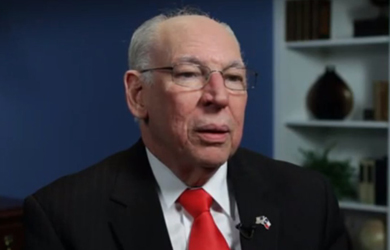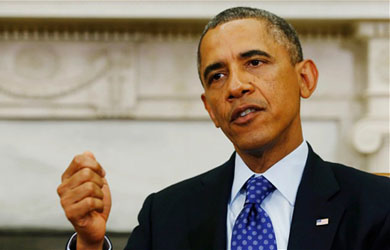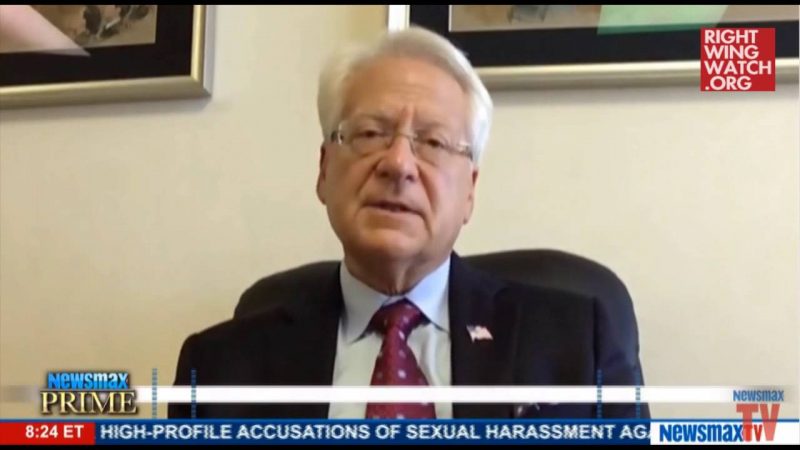For the past few weeks, we’ve been reporting on the “Stop the War on the Poor” campaign, an effort to label “extreme environmentalists” who oppose increased domestic oil drilling as enemies of the poor. The campaign counts among its leaders a group called Americans for American Energy, which describes itself as “a non-profit, grassroots-based organization dedicated to educating the public about the importance of greater energy independence for America and promoting public policies that support that goal.”
As we wrote last week, Americans for American Energy was created by Pac/West Communications, a firm with considerable Republican ties, and shares a location with the consulting firm of Jim Sims, communications director for Vice President Cheney’s energy task force. In 2007, fresh off helping to defeat attempts “to ban bear baiting in Alaska and impose new taxes on cruise ships,” Pac/West received a $3 million grant from the state of Alaska to “educate” the American public about ANWR drilling, that was later stopped by Gov. Sarah Palin because the PAC/West-Americans for American Energy efforts were “not part of an open and transparent process.” But that was not the end for Americans for American Energy.
Although its profile has risen along with the “Stop the War on the Poor” campaign, Americans for American Energy has been engaging in suspicious activities in western states for the last several years. In Colorado, it released a report claiming $1.2 billion in first-year profits for natural gas drilling on the Roan Plateau, an estimate that critics, such as the Wilderness Society, claimed were based on “junk science”
Credible economic studies need to stand up to independent review, list data sources and methods, and at the very least include the names of economists who authored the report. Unbelievably, this industry-backed study does none of this.
In Wyoming, its leaders falsely claimed that Gov. Dave Freudenthal was a supporter of their “powerful new oil and gas campaign,” leading the governor to write a letter disavowing the group. In Utah, they launched an email attack on Rep. Maurice Hinchey (D-NY) that compared him to Hugo Chavez and Osama Bin Laden:
Last week, over 160,000 Utah residents received an e-mail letter indirectly comparing a New York congressman to some of the most infamous men in the world.
Along with mug shots of Osama bin Laden, Venezuelan President Hugo Chavez and Iranian President Mahmoud Ahmadinejad appeared a photo of Rep. Maurice Hinchey (D-N.Y.).
Hinchey’s crime? Sponsoring the Red Rock Wilderness Act, a bill that would set aside 9.4 million acres of public land in Utah as wilderness.
The letter was attributed to Utah state GOP Reps. Aaron Tilton and Mike Noel, but it was the brainchild of Americans for American Energy, a Colorado-based industry group that has accepted money from, among others, the state of Alaska.
The Red Rock Wilderness Act will “WEAKEN America,” the letter states. “How? Because it will hamstring our ability to produce American energy right here in Utah. That leads America to become more dependent on energy from hostile foreign nations — some of whom fund terrorist organizations that are right now targeting our American men and women in uniform.”
An online version of the letter and corresponding Web site go further, for instance with a picture of bin Laden, Chavez and Ahmadinejad. “These terror leaders also want America to continue its foreign oil dependence,” reads the caption underneath the graphic.
Now, Americans for American Energy has turned from accusing its opponents of being in league with terrorists to accusing them of fighting a “war on the poor,” and this message seems to have resonated with Republicans on Capitol Hill. A number of rank and file Congressional Republicans showed up on-message at the kick-off press conference, including Rep. Bill Sali of Idaho, co-sponsor of a bill suspiciously entitled the “Americans for American Energy Act,” which “would open ANWR and the OCS to increase production of American crude oil and give the right incentives to boost conservation, improved efficiency and bring alternative energy online sooner.”
But they’ve gained a much higher-profile ally in Senator Orrin Hatch, who mentioned the campaign, quoted one of its leaders, Bishop Harry Jackson, and plugged its website, all on the Senate floor:
Unfortunately for the Democrat party, the poor are beginning to wake up that the liberals they have always looked to are behind the War on the Poor. By War on the Poor, I refer to the movement by the anti-oil extremists to close off every good domestic oil resource, which is a direct cause of the high energy prices Americans face.
Democrats in Congress have been forced to choose between the very well funded extreme anti-oil interests and the poor, because on energy prices there is no compromise between the two. The Democrats have begun to recognize the position they are in, and are trying to have it both ways with today’s vote.
Earlier this month, a group of protesters came to Capitol Hill calling on Congress to Stop the War on the Poor by groups and congressmen who are closing off America’s energy resources.
Included in the group were pastors and civil rights leaders calling on this body to unlock America’s oil resources for the benefit of Americans, and especially for the benefit of lower income Americans.
One of the Participants was Bishop Harry Jackson. I would like to quote some of his remarks for the record. These are his words:
“I am a registered Democrat, but this has nothing to do with partisan politics. Unless the public understands that there are specific people and organizations that are fueling this war against the poor, nothing will change and the poor will continue to suffer. We will unmask those behind this war regardless of their political party or ideology. Party labels and partisan ideologies are meaningless when it comes to protecting the lives of America’s most vulnerable citizens,”
By the way, Mr. President, you can see more about the stop the war on the poor movement on the web at www.stopwaronpoor.org.
Ironically, Niger Innis, co-chair of the Stop the War on the Poor effort, says that U. S. politicians are “being cowered by a very powerful, well-funded environmental extremist lobby that has a great deal of influence over them, and a great deal of influence over policy” and that their primary mission is “’outing’ the extremist groups and the politicians it says are doing their bidding.”
Bold words for a man heading an effort that is itself a phony Astroturf campaign on behalf of energy interests.







